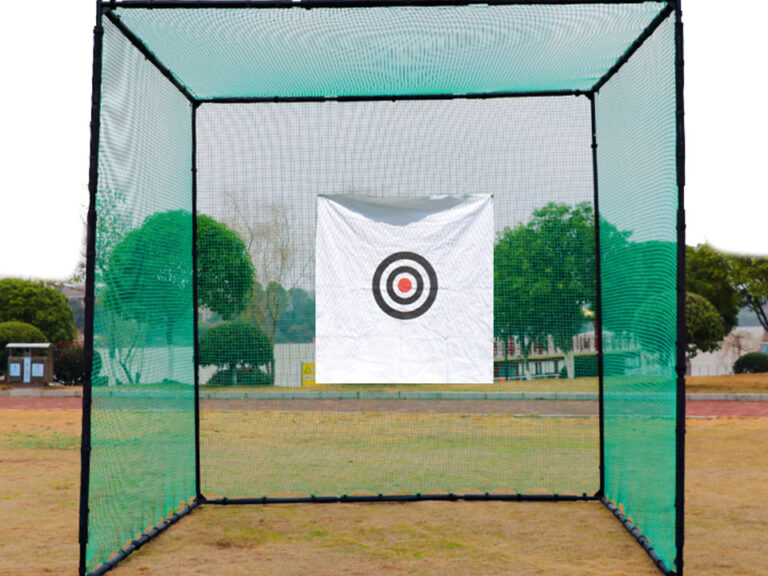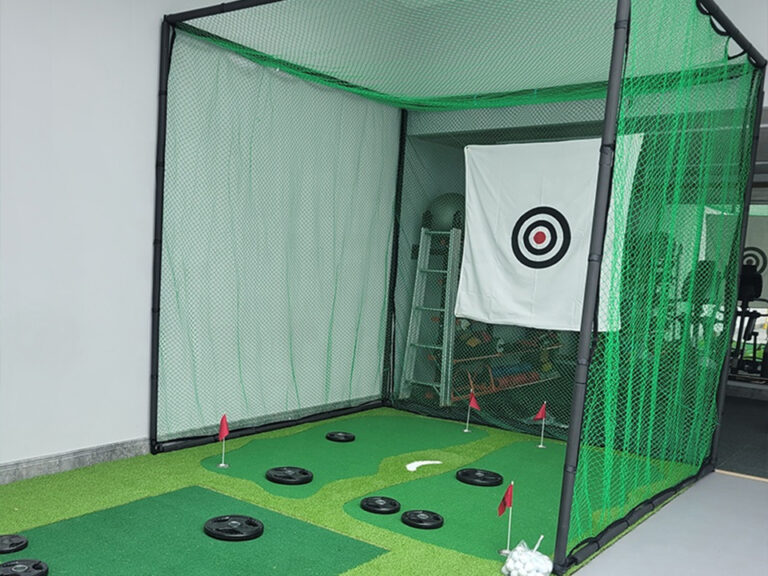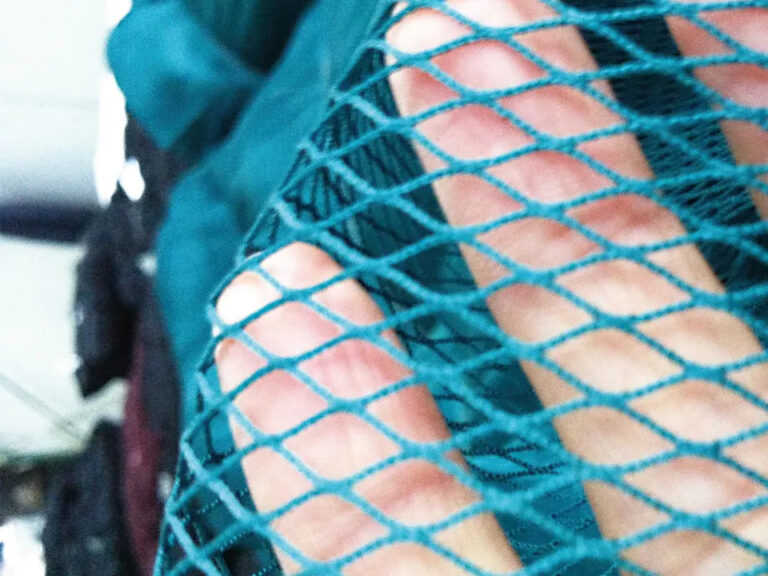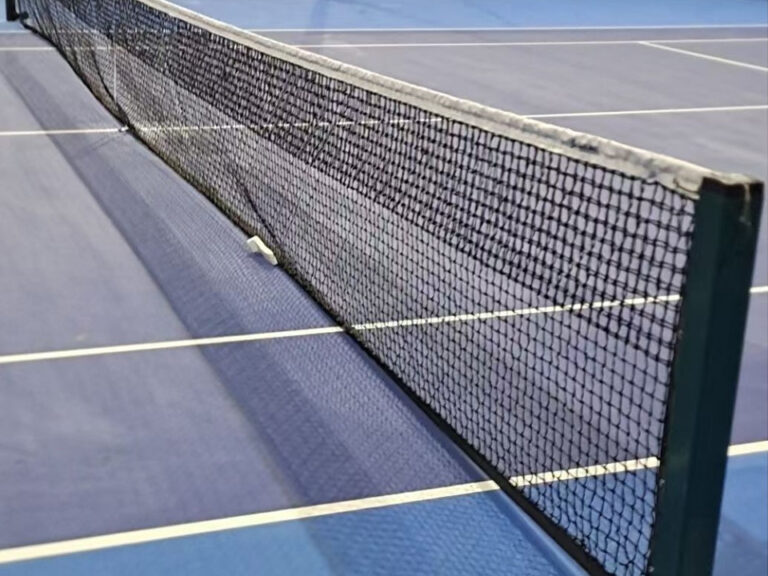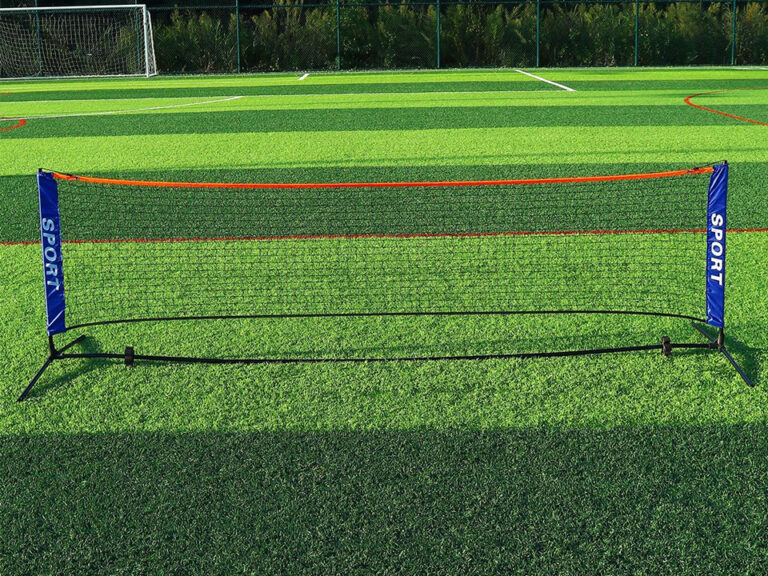Multi Court Pickleball Net Solutions For Parks
Pickleball is filling up parks fast. One or two courts don’t carry the load anymore. You need multi court layouts, smart net systems, and gear that survives real-world abuse, not just catalog photos.
Let’s walk through how parks can build or retrofit multi court pickleball zones, and where FSPORTS fits into that picture as a factory partner for OEM/ODM, bulk orders, and retail programs.
Table of Contents
Multi Court Pickleball Court Layout for Parks
Before you think about nets, you need a clean layout.
- Standard pickleball playing area: 20 × 44 ft
- Recommended “working footprint” per court in parks: roughly 30 × 60 ft to leave safe run-off space
- Between courts: keep clear walkways and safety buffers so players aren’t crashing into each other
For a typical public park, that usually turns into pods of 4–8 courts with shared aisles and one or two main entrances. That makes it easier to control traffic, run small leagues, and schedule group coaching.
A simple layout principle that works well:
- Start with a block of four parallel courts
- Align all nets in the same direction to avoid sun issues
- Add perimeter space on at least two sides for benches, bag drop, and ball carts
Once that’s clear, the net strategy becomes much easier.
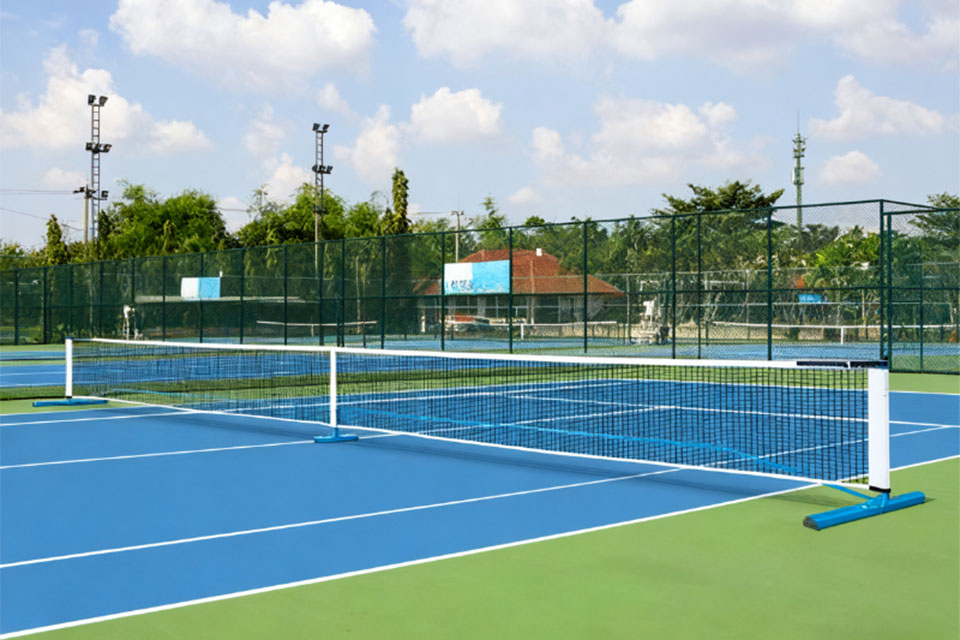
Types of Pickleball Net Systems for Multi Court Parks
Different parks have different headaches: some run 14 hours a day, some share surfaces with tennis or basketball. That’s why you usually mix net types instead of picking just one.
Here’s a quick comparison you can show to a park board or facility manager.
Pickleball Net Systems Comparison Table
| Net system type | Typical use in parks | Pros for multi court layouts | Watch-outs |
|---|---|---|---|
| Fixed in-ground posts + nets | Dedicated pickleball clusters | Rock solid, “pro” feel, low daily setup | Needs concrete work, no quick reconfig |
| Portable steel-frame nets | Shared courts, seasonal setups | Low capex, flexible, easy to store | More wear and tear, needs storage + staff time |
| Rolling / semi-permanent nets | High-traffic pods that still move sometimes | Near fixed stability, quick to re-zone courts | Heavier, needs clear routes for moving |
| Multi-sport net systems | Parks with tennis, badminton, volleyball in same zone | One footprint, many sports, better space ROI | More parts, staff training, slightly more ops complexity |
Now let’s drill into the systems that play best in parks.
Portable Pickleball Net Systems for Shared Courts
If you’re still testing demand, or sharing tennis/basketball space, portable nets are your first tool.
FSPORTS has several portable options you can plug straight into multi court plans:
- A classic portable regulation-size pickleball net for standard 22 ft courts, ideal for basic park pilots and weekend “overflow” courts.
- A more robust portable pickleball net with steel frame and support feet that holds up better when you’ve got constant player turnover.
- For programs that need extra stability without pouring concrete, a portable pickleball net frame set with carry bag and base helps keep nets planted even when players lean or grab the tape.
In a multi court park, you can:
- Stripe 4 pickleball courts on one tennis court.
- Use portable nets for off-peak or “pop-up” time slots.
- Pull them off when you hand the surface back to tennis or events.
From an ops angle, you’re trading some daily setup time for lower capex and maximum flexibility.
Rolling Base and Semi-Permanent Pickleball Nets
Once your courts are packed every evening, the conversation changes. You want something closer to fixed hardware, but still movable when you reshuffle layouts or run tournaments.
That’s where rolling and semi-permanent units come in. Think heavier frames, wider bases, and integrated wheels.
On the product side, FSPORTS covers that need with designs like:
- A portable yellow rolling-frame pickleball net system that’s easy for staff to move as a full unit between court lines.
- A height-adjustable pickleball net with wheels that can float between pickleball and other net sports, without changing hardware.
How parks typically use these in multi court zones:
- Build a 6–8 court “hub” with rolling nets that mostly stay put.
- Use wheels when you need to change from league layout to open play, or to pull courts back for resurfacing.
- Reduce setup/breakdown minutes per day, so staff can focus on crowd control instead of nuts and bolts.
This is the sweet spot when you want throughput and uptime across many courts.
Multi-Sport Net Systems for Parks
Many parks don’t live on pickleball alone. They still run kids’ tennis, casual volleyball, maybe even soccer-tennis.
Instead of buying separate rigs for every sport, multi-sport nets can carry several roles in one footprint. From FSPORTS, a few items plug into that strategy:
- An adjustable multi-sport net with rolling base and casters that lets you switch height and location fast.
- A 4-square volleyball badminton combo and pickleball multi-sports system that turns one slab into a multi-activity zone for community events.
- An adjustable-height portable multi-sports net for volleyball, tennis, badminton, and pickleball for small parks that still need flexible programming.
In a multi court pickleball context, these systems can:
- Fill edge zones that don’t fit full courts but are great for juniors or warm-up.
- Support kids’ programs in the morning and pickleball clinics in the evening.
- Give your programming team more “inventory” without new construction.
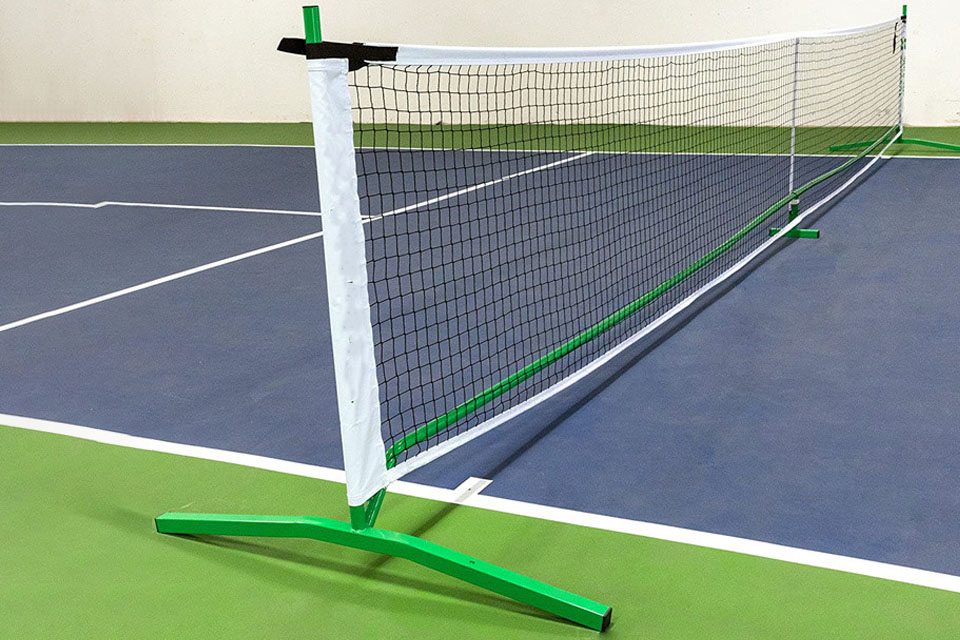
Converting Existing Tennis Courts to Multi Court Pickleball
Most parks don’t start with empty land. They start with old tennis courts and tight budgets.
A simple, proven path:
- Re-stripe one tennis court into four pickleball courts. Keep existing fencing and lighting where possible.
- Drop in portable or rolling nets. For example, a portable pickleball net 22 ft regulation size or an outdoor portable 22 ft pickleball net set works well.
- Use a mix of permanent and “overflow” courts.
- Two courts run full time.
- Two courts open only during peak demand or events.
- Add training tools to keep players on court. A unit like the adjustable pickleball rebounder net with 5 target zones helps run clinics and skill sessions without extra staff.
This path avoids heavy civil work up front and lets you scale as demand grows. Once you see constant waitlists, you can commit to more permanent infrastructure.
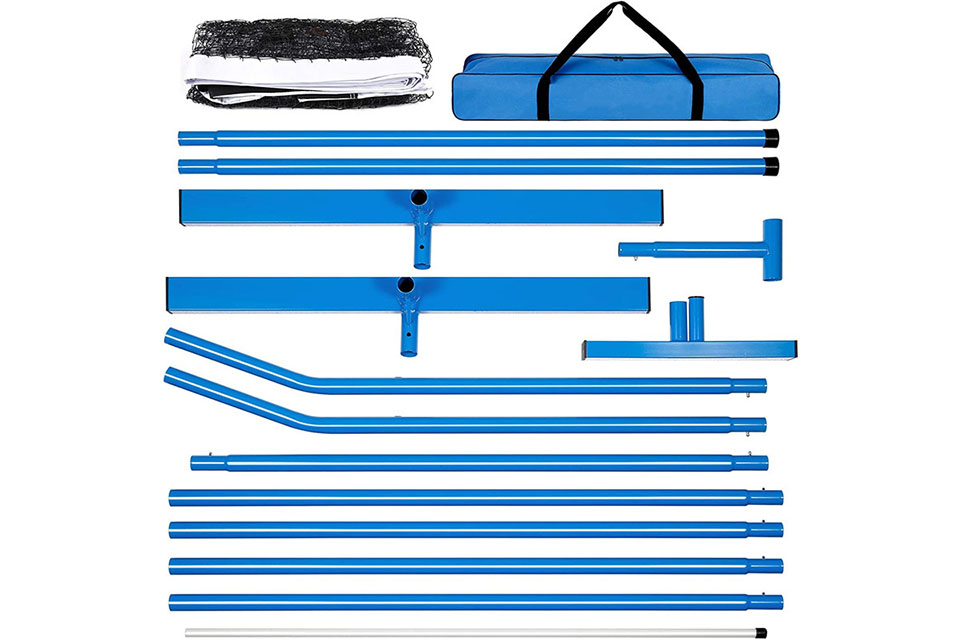
Operational Considerations for Park Pickleball Net Systems
Gear is only half the story. Multi court setups live or die on operations.
Key points facility managers care about:
- Setup / teardown time
- Portable nets: ideal under strong volunteer culture or staff coverage.
- Rolling units: better for lean crews that still want flexibility.
- Storage and logistics
- Make sure you’ve got a clean route from storage to every court pod.
- Use tagged, color-coded nets per pod to cut mistakes and downtime.
- Lifecycle and maintenance
- UV-resistant netting, coated frames, and strong welds matter in parks that live outdoors all year.
- As a factory supplier, FSPORTS can tweak specs for OEM clients and big buyers so you match local climate and wear patterns instead of buying “one-size-fits-none” gear.
- Programming and revenue
- Multi court pods with smart net choices support open play, leagues, coaching, and events on the same footprint.
- That means more usage hours per day without adding more land.
If you need one go-to portable system for general park use, something like the portable pickleball net and practice net set with carrying case slots nicely into community programs and starter packs for retailers.
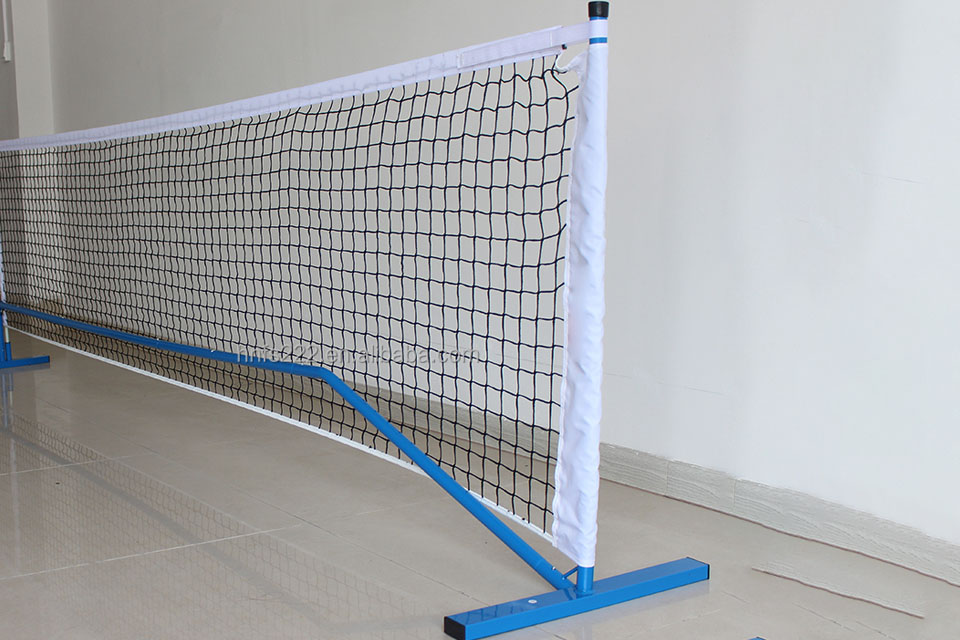
How FSPORTS Supports Multi Court Pickleball Net Projects
FSPORTS isn’t just a shop front. It’s a factory focused on sports netting and frames, with OEM/ODM capability and bulk production for brands, distributors, and retailers.
For multi court pickleball parks, that matters because you can:
- Standardize SKUs across many locations with one spec, one supplier.
- Customize details like frame thickness, wheel type, logo print, and packaging for your channel (B2B retail, e-commerce bundles, or institutional tenders).
- Mix product types in one container: regulation nets, junior nets, multi-sport rigs, and training aids.
Typical bundles for park and channel partners use combinations like:
- Core park inventory: rolling or semi-permanent nets such as the yellow rolling-frame pickleball net system plus regulation units like the portable regulation pickleball net system with carry bag.
- Programming add-ons: rebounders and multi-sport nets to round out coaching and junior programs.
If you’re planning multi court pickleball in parks—whether you’re a municipal buyer, a wholesaler, or an OEM brand owner—the right mix of layouts and net systems will give you safe courts, high throughput, and gear that actually survives real-world use. FSPORTS is built to support that at factory scale, from concept samples to full bulk runs.

